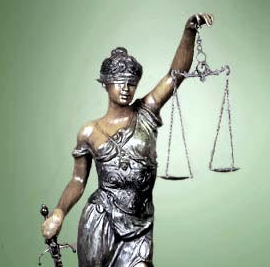The Tort of Malicious Prosecution
 Wednesday, November 28, 2012 at 04:35PM
Wednesday, November 28, 2012 at 04:35PM On November 20, 2012, the New York State Court of Appeals - NYS's highest court - issued its opinion in the case of Grucci v. Grucci. Divorce generates heat and, in this case, fire as well. An ex-wife obtained an order of protection against her ex-husband. The ex-wife then complained to the Police alleging that her husband was harassing her by repeated telephone calls with no legitimate purpose and that he put her in fear of death and injury during these telephone conversations. The ex-wife gave a sworn written statement to the police that the ex-husband threatened to have her killed. The evidence was presented to a grand jury which indicted the ex-husband. After a trial, the ex-husband was found not guilty so the ex-husband sued his ex-wife for malicious prosecution in a civil lawsuit. He alleged that she lied about the harassment and threats. This time, the wife won.
The opinion of the Court of Appeals listed the elements that a plaintiff must prove to establish the tort of malicious prosecution:
- the defendant commenced or continued a criminal proceeding against the plaintiff
- the prosecution terminated in plaintiff's favor
- probable cause was absent and
- actual malice
The ex-husband lost the civil case when the jury found that the ex-wife did not commence or continue the criminal prosecution. Even though the ex-wife gave a sworn written statement, the ex-husband, for some reason, called the DA who prosecuted the criminal case to testify who said that a standing policy existed in which the police had no discretion whether or not to make an arrest in a domestic violence incident and that the District Attorney makes the decision to prosecute not the victim of domestic violence." The Court of Appeals indicated that such evidence supported the jury's findings.
The ex-husband complained on appeal that the trial court excluded evidence that would have showed the jury that the ex-wife's sworn statement to the Police was false. A dissenting judge on the Court of appeals said that if the complainant engages in bad faith conduct that results in a prosecution, she has "commenced" the prosecution. The majority of the Court of Appeals said that the ex-husband did not present enough evidence that would have made the excluded evidence admissible at trial.
What was the key evidence? During the pendency of the case the brother of the ex-husband recorded a conversation with the wife in which she allegedly admitted that she did not feel threatened by her ex-husband and allegedly lied to the police for a different reason. The trial court excluded the audio tape from consideration because the ex-husband did not lay a proper foundation for the admission into evidence of the audio tape. To lay a proper foundation for the admission of the audio tape into evidence, the Court of Appeals explained, clear and convincing evidence needed to be presented proving that the tapes were genuine and had not been altered. Such evidence would consist of testimony that showed who recorded the conversation, how it was recorded (e.g., the equipment used) or the chain of custody of the audio tape during the time between when the conversation took place and the trial. All the ex-husband offered as a foundation was to have a party to the conversation, the brother, identify the voices on the audio tape and to state that the audio tape was fair and accurate.
The Court of Appeals also said something interesting. It said that even though the State of New York was prosecuting the criminal case against the ex-husband, the statements of the ex-wife to the brother of the ex-husband could have been introduced into evidence as "admissions of a party opponent". However, the Court of Appeals said, this argument was never made to the trial judge.
Thus, the ex-husband seems to have lost this case by failing to present the proper evidence. A false statement from a complaining witness from which arises a criminal prosecution still is the first prong of a malicious prosecution case. However, in this case it seems, the ex-husband did not prove it.




